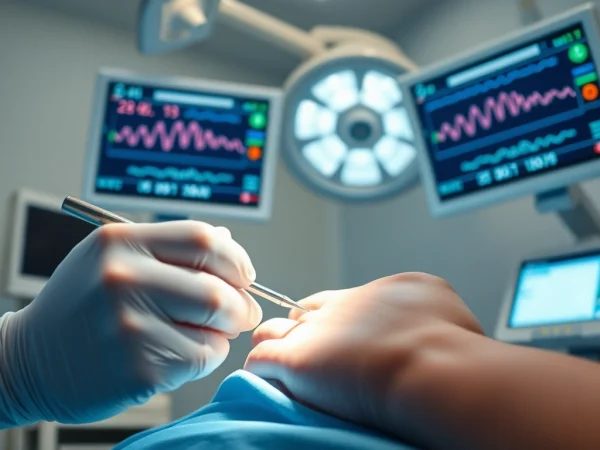Strategies for Effective Breast Cancer Recovery: Emotional and Physical Wellness
Understanding the Breast Cancer Recovery Process
What is Breast Cancer Recovery?
Breast cancer recovery involves a multifaceted approach aimed at regaining health and well-being after a breast cancer diagnosis and treatment. It encompasses not only the physical healing that follows surgery, chemotherapy, or radiation, but also emotional and psychological recovery. The process varies widely among individuals, influenced by factors such as the type of breast cancer, stage of the disease, treatment options, and personal resilience. A robust understanding of breast cancer recovery is essential for patients and their families to navigate the journey that lies ahead.
Effective breast cancer recovery requires a commitment to self-care, adherence to medical advice, and a focus on holistic health practices that empower individuals to lead fulfilling lives post-treatment. From managing the physical side effects of treatment to cultivating emotional strength, each step of recovery presents opportunities for growth and renewal.
Stages of Recovery
The stages of breast cancer recovery can be broken down into several key phases:
- Initial Recovery: Following surgery or the conclusion of treatment, the body begins to heal. This stage typically includes managing physical symptoms and side effects, ensuring proper wound care, and following post-operative guidelines. It’s crucial to attend follow-up appointments to monitor physical recovery.
- Rehabilitation: As physical healing progresses, rehabilitation may focus on regaining strength and mobility. This phase can incorporate physical therapy, exercise programs designed for cancer survivors, and nutritional adjustments to support overall health.
- Emotional Healing: The psychological effects of a breast cancer diagnosis can linger long after physical healing. Individuals often undergo emotional recovery, which includes addressing anxiety, depression, and the fear of recurrence. This may involve counseling, support groups, or wellness programs.
- Long-Term Wellness: Achieving a long-term recovery means adopting wellness strategies that promote a healthy lifestyle. This phase includes regular exercise, maintaining a balanced diet, and integrating stress management techniques into daily life.
The Importance of a Support System
A strong support system plays a vital role in the breast cancer recovery process. Family, friends, healthcare providers, and support groups can offer essential emotional, practical, and informational assistance. Having trusted individuals to lean on can provide comfort and reassurance, reducing feelings of isolation and anxiety.
Moreover, support groups, whether online or in-person, can connect individuals facing similar challenges. Sharing experiences and resources can foster a sense of community and belonginess. Those who have navigated the journey before can provide invaluable insights and strategies to cope with the challenges of recovery.
Emotional Wellbeing During Breast Cancer Recovery
Addressing Mental Health Challenges
Breast cancer recovery can trigger various mental health challenges. Many individuals experience emotions ranging from anger, sadness, and resentment to anxiety about the future. Recognizing and addressing these challenges is crucial for overall recovery. Mental health should be treated with the same urgency as physical health; patients should not hesitate to seek help when needed.
Common mental health issues during recovery include post-traumatic stress disorder (PTSD), anxiety disorders, and depression. Engaging in mindfulness practices, seeking therapy, or joining support groups can be effective means of processing emotions and developing coping skills. Early intervention and open discussions with healthcare providers can lead to timely support and treatment.
Building Resilience and Coping Strategies
Resilience is the ability to bounce back from adversity; it is a crucial quality during breast cancer recovery. Building resilience involves developing coping strategies that help individuals navigate the ups and downs effectively. Techniques may include:
- Mindfulness and Meditation: Practices such as mindfulness and meditation can help individuals focus on the present, reducing anxiety and promoting relaxation.
- Journaling: Writing about feelings can be beneficial as it allows for reflection and expression, serving as an emotional outlet.
- Setting Goals: Establishing small, achievable goals can foster a sense of purpose and help in building confidence.
- Social Engagement: Actively participating in social activities and nurturing relationships can enhance emotional support and reduce feelings of isolation.
Seeking Professional Counseling
Professional counseling can provide significant benefits for individuals recovering from breast cancer. Licensed therapists specializing in oncology can help patients address their emotional needs and develop effective coping mechanisms. Therapy can be a safe space to talk about fears, grief, and trauma associated with breast cancer, enabling individuals to process these complex feelings healthily.
Cognitive-behavioral therapy (CBT), for instance, is often employed to change negative thought patterns, while group therapy can facilitate supportive connections. Psychological assessments can help tailor treatment approaches to each individual’s unique needs, making professional counseling a vital component of comprehensive breast cancer recovery.
Physical Health and Rehabilitation
Nutrition’s Role in Breast Cancer Recovery
Nutrition plays an important role in breast cancer recovery by fueling the body and supporting overall health. A well-balanced diet rich in fruits, vegetables, whole grains, lean proteins, and healthy fats can contribute to recovery by:
- Promoting healing by providing essential vitamins and minerals.
- Maintaining a healthy weight and preventing obesity, which can influence cancer recurrence.
- Enhancing energy levels and improving physical and emotional well-being.
It’s recommended that individuals work with a nutritionist to develop a meal plan tailored to their needs and preferences. Incorporating anti-inflammatory foods—such as berries, fatty fish, and nuts—can also support immune function and long-term health.
Exercise and Physical Activity Guidelines
Regular physical activity is a fundamental aspect of breast cancer recovery. Exercise not only aids in restoring physical strength but also improves mood and reduces anxiety. Health guidelines generally recommend that cancer survivors engage in at least 150 minutes of moderate-intensity aerobic exercise each week, combined with strength training exercises at least twice weekly.
Engaging in activities such as walking, swimming, yoga, or cycling can be particularly beneficial. It’s essential to start gradually, especially for those who may not have been active during treatment, and to consult healthcare providers for personalized exercise recommendations. Joining community fitness classes can also foster motivation and support.
Managing Treatment Side Effects
Breast cancer treatment can lead to various side effects, including fatigue, pain, and changes in body image. Addressing these challenges is crucial for a smooth recovery. Strategies for managing common side effects include:
- Pain Management: Exploring medication, physical therapy, and alternative therapies such as acupuncture can be effective in reducing pain levels.
- Fatigue Management: Gradual increases in physical activity, along with scheduled rest periods, can help combat fatigue.
- Body Image Adjustments: Engaging with supportive communities, wearing comfortable clothing, and considering options for breast reconstruction or prosthetics can assist in addressing body image concerns.
Holistic approaches, including mindfulness and massage therapy, can also contribute positively to managing treatment side effects, promoting relaxation and emotional well-being.
Finding Community Support and Resources
Local and Online Support Groups
Finding support during breast cancer recovery is vital, and numerous local and online resources exist for those seeking connection and understanding. Support groups provide a safe environment to share experiences, talk about challenges, and gain insights from others who have faced similar circumstances.
Local hospitals, cancer centers, and community organizations often host support groups, while online platforms can offer broader reach and flexibility for those with scheduling difficulties or mobility challenges. Participating in these groups not only provides emotional support but can also lead to friendships and long-lasting connections based on shared experiences.
Educational Resources for Patients
Education is empowering in navigating the recovery journey. Patients should seek out reputable educational resources that provide trustworthy information about breast cancer recovery, treatment options, and coping strategies. This can include:
- Books written by oncologists and survivors.
- Websites from cancer organizations offering comprehensive guides.
- Workshops and seminars focused on survivorship and wellness.
By staying informed, patients can make educated decisions about their health, enhancing their ability to advocate for themselves during recovery.
Connecting with Survivors
Healing often involves connecting with those who have walked a similar path. Engaging with survivors can provide hope and insight into life after breast cancer. Many organizations sponsor events that allow patients and survivors to meet, share stories, and support one another in their journeys.
Peer mentoring programs can also pair newly diagnosed individuals with long-term survivors who can offer guidance and encouragement. These connections foster a sense of community and validation, promoting a positive outlook on recovery and survivorship.
Long-Term Wellness and Lifestyle Changes
Creating a Sustainable Health Plan
Long-term wellness involves committing to a sustainable health plan that encompasses physical, mental, and emotional well-being. This may include regular check-ups with healthcare providers, adhering to medication or hormone therapy if recommended, and making lifestyle changes that promote health and reduce the risk of recurrence.
Developing a health plan can be a personalized endeavor, tailored to individual circumstances, preferences, and post-recovery goals. Engaging with healthcare professionals, including nutritionists and fitness consultants, can provide additional guidance and accountability.
Mindfulness and Stress Management Techniques
Mental health and stress management are paramount to long-term wellness. Incorporating mindfulness practices, such as meditation, deep-breathing exercises, and yoga, can significantly reduce stress levels and improve overall outlook. Other techniques may include:
- Time Management Skills: Prioritizing tasks and setting realistic goals can enhance productivity and reduce feelings of being overwhelmed.
- Creative Outlets: Engaging in hobbies such as painting, writing, or crafting can provide therapeutic benefits and encourage expression.
- Nature-Based Activities: Spending time outdoors, whether through hiking or gardening, can promote feelings of peace and wellbeing.
Maintaining a Positive Outlook for the Future
Maintaining a positive outlook is essential in the aftermath of a breast cancer diagnosis. Cultivating optimism not only improves emotional health but can also enhance physical recovery. Techniques for fostering positive thinking include:
- Gratitude Journaling: Regularly noting what one is grateful for can shift focus from challenges to positive aspects of life.
- Vision Boards: Creating vision boards can visually manifest goals and dreams, reinforcing a hopeful perspective.
- Community Involvement: Volunteering or participating in local advocacy can provide a sense of purpose and contribute to a future-oriented mindset.
Embracing a mindset geared towards growth and hope can inspire individuals to create fulfilling lives beyond breast cancer, viewing the experience as a chapter that informs their resilience and strength.










